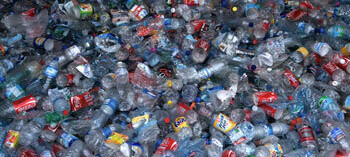New Perspectives for Green Chemistry
In the traditional linear economy, natural resources are mined from the earth, processed into goods, used until the end of the product lifecycle, and discarded in landfills as waste.

The Challenges of a Traditional, Linear Economy and the Growing Need for a Circular Economy Approach
In the traditional linear economy, natural resources are mined from the earth, processed into goods, used until the end of the product lifecycle, and discarded in landfills as waste. But this linear model also provides an opportunity for us to harvest valuable molecules from end-of-lifecycle products to be upcycled into high-performance chemistry solutions.
The Challenge
The current world population of 7.6 billion is expected to reach 8.6 billion in 2030 and 9.8 billion in 20501. Furthermore, for more than 50 years, global production of plastic has risen faster than GDP. Recovery and recycling remain insufficient, and millions of tons of plastics end up in landfills and oceans each year.2
According to the United Nations Environmental Program, between 22 percent and 43 percent of the plastic used worldwide is disposed of in landfills – an approach that wastes resources, takes up valuable space, and blights communities.3 Recovering plastic from the waste stream for recycling or energy generation via combustion has the potential to minimize these problems. However, much of the plastic collected for recycling is shipped to countries with lower environmental regulation, and burning plastic for energy presents separate environmental challenges.
In July 2017, China announced changes in quality controls the country places on imported materials, notifying the World Trade Organization that it will ban imports of 24 categories of recyclables and solid waste4 by the end of the year. This campaign against yang laji, or “foreign garbage,” applies to plastic and will result in China taking less material as it replaces imported materials with recycled material collected in its own domestic market.
With U.S. landfills already nearing capacity, what will happen to the plastic collected through household recycling systems once China limits its acceptance? Recycling pathways exist, but a high percentage of plastics collected for recycling still finds its way back to landfills. What are the alternatives?
The Potential
Resinate has developed technology that allows us to harvest valuable molecules from materials traditionally considered waste. In contrast to recycling, this technology allows us to save natural resources at the molecular level, extending the life-cycle of finite resources and upcycling them into high-value, longer-life materials such as specialty chemicals. It’s a new perspective for green chemistry.